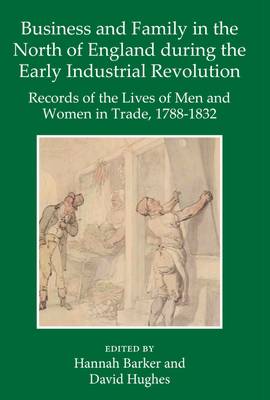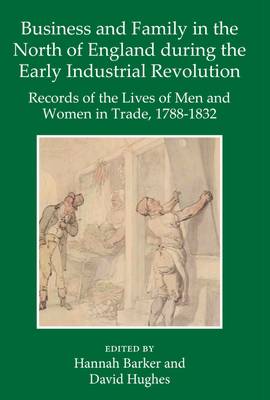
- Afhalen na 1 uur in een winkel met voorraad
- In januari gratis thuislevering in België
- Ruim aanbod met 7 miljoen producten
- Afhalen na 1 uur in een winkel met voorraad
- In januari gratis thuislevering in België
- Ruim aanbod met 7 miljoen producten
Business and Family in the North of England During the Early Industrial Revolution
Records of the Lives of Men and Women in Trade, 1788-1832
Omschrijving
This volume focuses on the lives of tradesmen and women in the northern 'industrial' and commercial towns of Leeds, Sheffield, Manchester and Liverpool between 1788 and 1832. It incorporates the correspondence of the Wilson family of Sheffield snuff manufacturers (1788-95); the memoir of a Liverpool baker, John Coleman (1797); the diary of George Heywood, a Manchester grocer (1809-15); and the letterbook of the Leeds milliner, Robert Ayrey (1832). Each of the four sets of primary materials offers detailed insights into the domestic, familial, 'personal' and spiritual lives of their authors and their friends and relations, as well as shedding light on their business dealings and links with the wider communities in which they lived. It is unusual to find such intimate material from relatively modest middling men and women of this period extant, and the survival and publication of these documents provides us with rare vistas onto their experiences, expectations and anxieties. Although different in form, the sources in this volume fit together well due to their shared themes of business and family life, and their subjects' broadly similar social status and urban settings. Moreover, the volume relates to a variety of current historical concerns including gender, domesticity, marital relations, women's work and property, the family, urban society and business. It is also very readable, since many of the accounts are particularly lively, and include elements of drama, romance and pathos in addition to more prosaic business concerns.
Specificaties
Betrokkenen
- Uitgeverij:
Inhoud
- Aantal bladzijden:
- 385
- Taal:
- Engels
- Reeks:
- Reeksnummer:
- nr. 60
Eigenschappen
- Productcode (EAN):
- 9780197266700
- Verschijningsdatum:
- 23/07/2020
- Uitvoering:
- Hardcover
- Formaat:
- Genaaid
- Afmetingen:
- 155 mm x 234 mm
- Gewicht:
- 657 g

Alleen bij Standaard Boekhandel
Beoordelingen
We publiceren alleen reviews die voldoen aan de voorwaarden voor reviews. Bekijk onze voorwaarden voor reviews.








